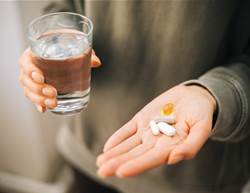The benefits of coffee go beyond just an energy boost—studies suggest it may help lower the risk of stroke and heart disease, support muscle health, and even contribute to longevity. However, new research suggests that when you drink your coffee may play a role in heart health and lifespan.
A study published in the European Heart Journal examined the timing of coffee consumption and its impact on longevity. Researchers analysed data from 40,725 adults between 1999 and 2018, tracking their daily food and drink intake—including whether they drank coffee, how much, and when. A subgroup of 1,463 participants recorded their intake in a detailed food and drink diary for a full week. This data was then linked to mortality records over nine to ten years.
The study found that morning coffee drinkers were 16% less likely to die from any cause and 31% less likely to die from cardiovascular disease compared to those who didn’t drink coffee. However, those who drank coffee throughout the day did not experience the same reduction in risk.
The biggest health benefits were seen in those who consumed two to three cups per day or more than three cups in the morning. Those who had one cup or less in the morning saw a smaller, yet still notable, reduction in risk.
“Our findings suggest it’s not just how much coffee you drink, but when you drink it that matters,” said senior study author Dr Lu Qi. “Timing is not typically included in dietary recommendations, but perhaps it should be considered in the future.”
How does coffee support health?
Beyond providing an energy boost, coffee contains phenolic acids and flavonoids—powerful antioxidants that help protect against free radical damage, explains registered dietitian and nutritionist Melissa Prest.
Emerging evidence suggests that morning coffee drinkers may have a lower risk of all-cause and cardiovascular mortality compared to those who consume coffee throughout the day, says preventative cardiologist Dr Adedapo Iluyomade. “This could be due to coffee’s interaction with circadian rhythms, as consuming caffeine later in the day may disrupt sleep and melatonin secretion, potentially reducing some of its health benefits.”
Having coffee earlier in the day is generally recommended to support better sleep and overall health, agrees Prest, as “poor sleep quality and lack of sleep can negatively impact wellbeing.”
The bottom line
This study highlights that both the timing and amount of coffee you drink matter when considering its health benefits, says Dr Iluyomade. “Regular, moderate coffee intake in the morning appears to offer greater protection against cardiovascular disease and overall mortality compared to sporadic or late-day consumption, reinforcing the importance of aligning dietary habits with natural circadian rhythms,” he explains.
Coffee’s health benefits extend beyond heart health, Dr Iluyomade adds. “Moderate intake has also been associated with a lower risk of several chronic conditions, including type 2 diabetes, certain cancers and neurodegenerative diseases.” However, as these findings are based on observational research, individuals should consider their own caffeine tolerance and how it affects their overall wellbeing.










